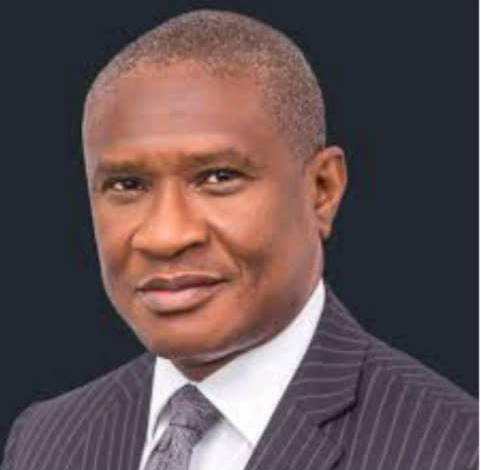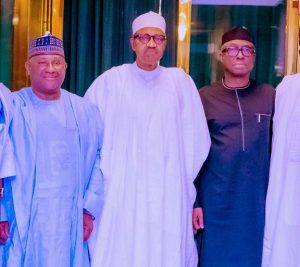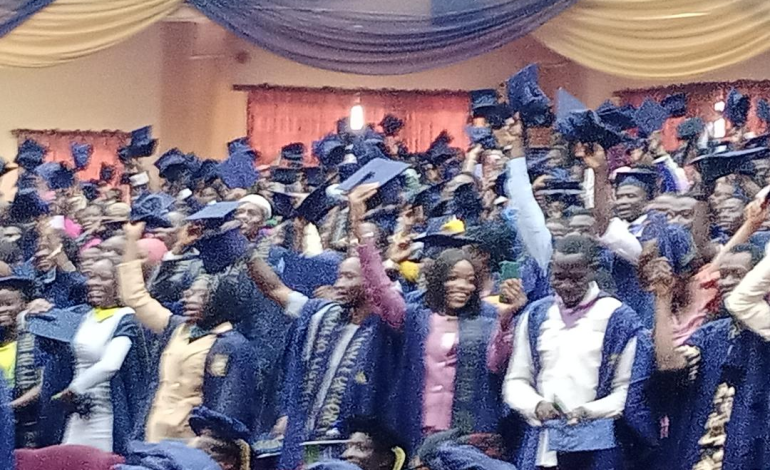
Modernization has served as catalyst for women’s participation in governance, leadership and decision-making while also promoting the nuclear family structure, Professor Toyin Falola, a Professor of History at the University of Texas, Austin, United States of America, has said.
He also said the societal shift towards modernity has shown a significant transformation in human principles and ethical orientations submitting that the advent of modernity which prioritizes individualism has witnessed a gradual but noticeable transition from a collective consciousness to personal autonomy.
This transformation has according to him fostered a social context where individual ambitions and accomplishments have taken precedence over communal objectives.
He also noted that during the nascent stages of human civilization, values were inherently tied to the fundamental necessities of survival and harmonious cohabitation.
‘These values emerged in response to the unrefined challenges posed by existence itself, as communities were intricately interconnected through shared convictions and cultural practices. The transmission of these enduring cultural values, which have been deeply ingrained in the social structure, often spanned across successive generations. This led to the development of a mutually beneficial relationship with the natural environment and the nurturing of a deep sense of communal interconnectedness and affiliation’ he submitted.
‘One noticeable aspect of this societal transformation can be observed in the evolving dynamics of familial structures and interpersonal relationships. Historically, extended families functioned as tightly-knit social units.
However, contemporary societal patterns have shown a gradual shift towards nuclear family structure, influenced by various factors such as urbanization and the demands of modernity. The evolving nature of this phenomenon is also reflected in the ongoing transformation of gender roles, as women have increasingly asserted their rights and positions in public life. This process involves questioning established societal expectations and establishing domains that align with ideas of empowerment and self-governance. The contemporary Nigerian woman is no longer confined to domestic duties but plays a significant role in various socio-economic spheres’ he added.
Team@orientactualmags.com learned that Professor Toyin Falola said this while delivering his keynote speech during the Convocation Lecture held by the University of Ilorin at its main auditorium on Friday which was part of the activities and programmes for the institution’s 37th and 38th convocation ceremonies.
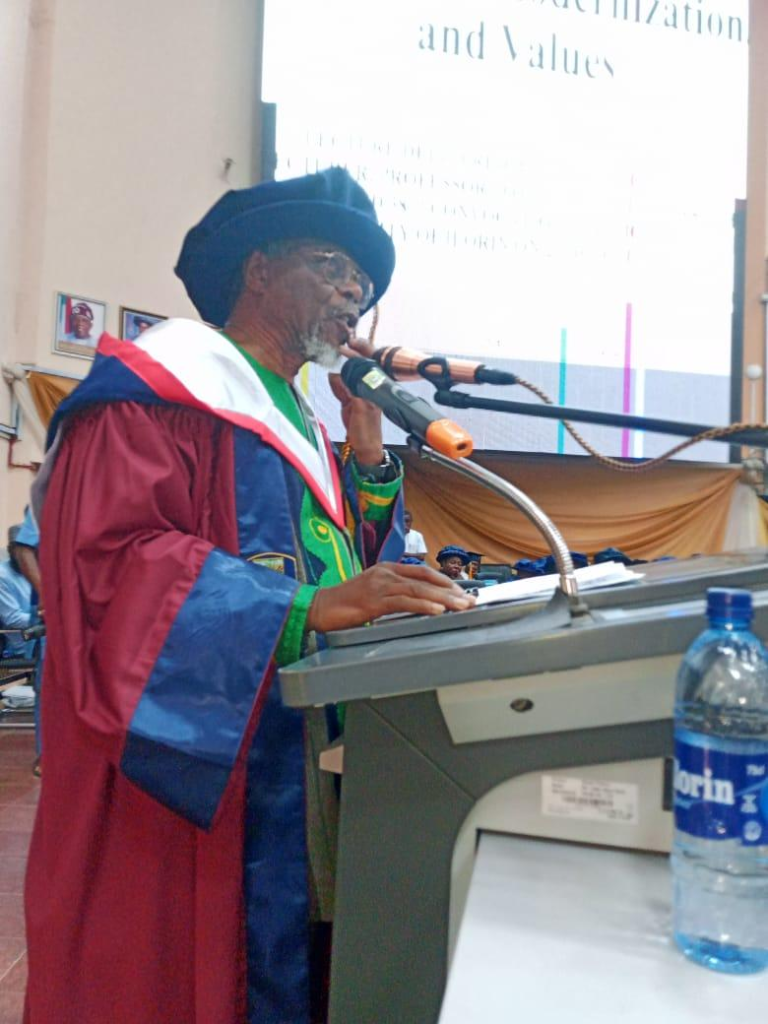
Professor Falola’s keynote topic was ‘Modernity, Modernization, and Values’.
Submitting that the shift from traditional to contemporary society is not merely a historical occurrence, but rather a multifaceted and intricate progression that continues to profoundly influence ‘our global landscape in diverse manners’ , he also noted that while exploring the complex evolution of values throughout history, ‘we are immersed in a multifaceted and intellectually stimulating realm’, the fundamental principles that shape human societies , he added, have also experienced profound transformations, embodying a dynamic and continually evolving nature.
The Professor of History also opined that the Industrial Revolution has greatly influenced the evolution of societal values, precipitating a surge in urbanization and the introduction of groundbreaking technological innovations while the dynamics of value has undergone a shift that has featured an increased focus on material well-being.
This shift has however according to him fostered the development of both competitive and cooperative attitudes, resulting in a multifaceted narrative of progress and advancement.
While submitting that contemporary societal values are increasingly molded by the interplay of connectivity, access to information, and growing awareness of global issues, including environmental sustainability and social justice, Falola also talked about the far-reaching effects of the digital revolution and the establishment of a globalized system of governance.
‘The current era is experiencing a noticeable surge in the propensity to embrace principles that align with inclusivity, diversity, and a sophisticated understanding of the interdependence that governs our contemporary global society’ he said.
The desire to reclaim and celebrate the opulent and multifaceted heritage that fundamentally shapes ‘collective identity’ has according to him made the contemporary Nigerian society experience a resurgence of enthusiasm towards indigenous languages, arts, and culture while adding that social media platforms have enhanced connectivity and given birth to heightened awareness, increased interconnectedness, and consequently, greater susceptibility to the influence of global trends and perspectives.
He also said the emergence of mobile technology and the internet has recorded a profound transformation in respect of the way Nigerians communicate, access information, and engage with the global community. The linguistic landscape in the country which features a unique fusion of Pidgin and indigenous languages, has, according to him gradually influenced the official language –English.
‘The digital revolution is cultivating a society that is progressively interconnected, well-informed, and globally aware’ he averred.
Falola also said Asian countries including India and China have undergone significant transformations in their socio-cultural terrains which has recorded a noticeable shift in the importance placed on communal and familial ties noting that the societies in question have gradually accommodated the desires for individuality and personal autonomy.
The Professor of History also noted that in the education sector, efforts are currently being made to integrate curricula deeply rooted in the historical and cultural context of Nigeria in order to cultivate a generation that maintains a connection to its heritage, while also possessing the necessary skills to navigate the complexities of the global environment.
Submitting that Nigeria faces the formidable challenge of nurturing a media landscape that is dynamic and accountable, the country has according to him consistently demonstrated its commitment to regional stability and cooperation, while assuming a crucial role in promoting peace and collaboration within the African continent.
This role, he added, aligns with the broader global aspiration to cultivate peace, stability, and cooperation in an ever-changing global landscape.
He also noted that modernization causing deforestation, pollution, and the depletion of natural resources has become a cause for concern and therefore called for a dialogue that will promote an approach grounded in sustainability and ecological awareness.
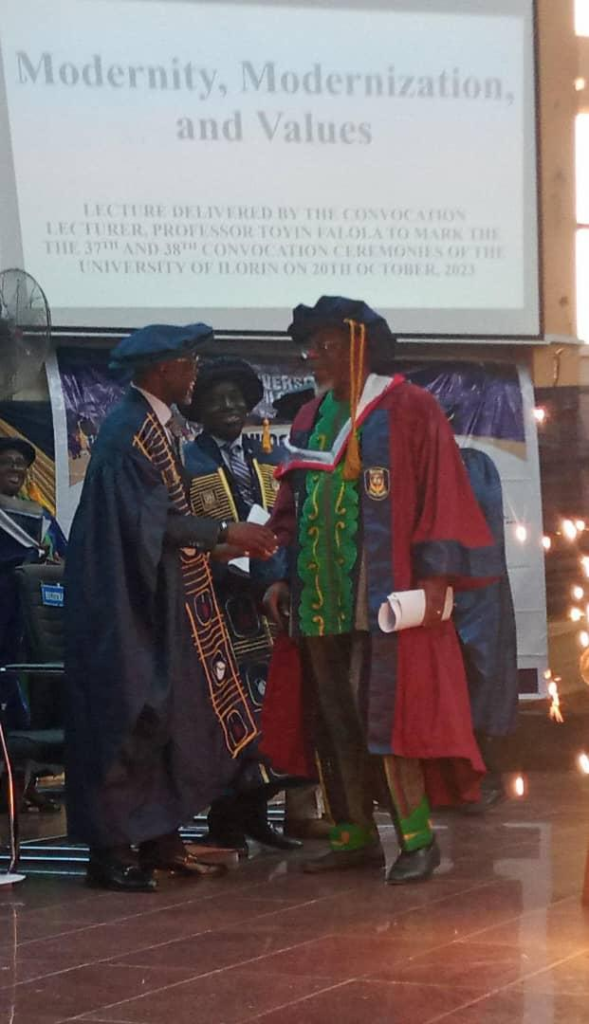
It was a dual-purpose event as graduands that are of the 37th Convocation Ceremony category were conferred degrees.
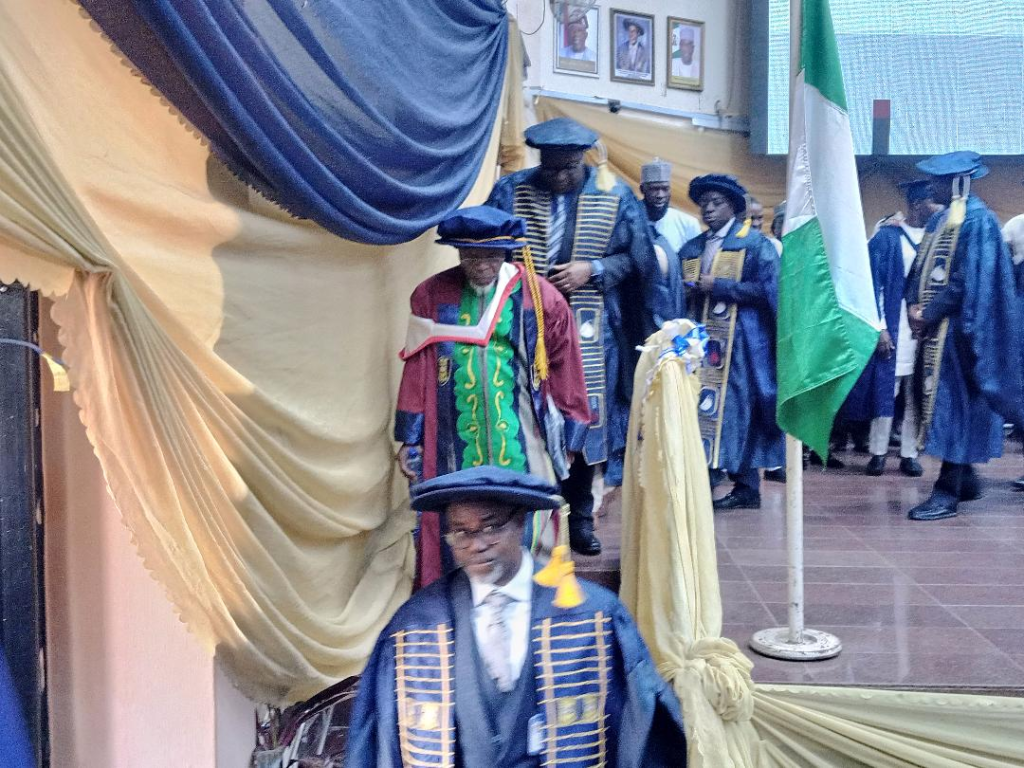
Giving his speech, the Vice-Chancellor, Professor Wahab Egbewole told the graduands that the convocation ceremony has marked a new chapter in their lives while urging them to serve as agents of change and help to address the challenges the world currently faces including climate change, he however asserted that they have been prepared to confront such challenges.
‘You are part of a generation that has the power to shape the future and make a positive impact on society. You have been equipped with the knowledge, skills, and values necessary to navigate the complexities of the world and create positive change.
The world is facing significant challenges, from climate change to social inequality, and it is up to you to be the agents of change. I challenge you to think critically, think without a box, be open-minded, and collaborate with others to find solutions to these complex issues.
Your education at the University of Ilorin has prepared you for this, and I have no doubt that you will rise to the challenges’ he said.
‘A total of 14,477 students will be convoking for the 37th Convocation Ceremonies. In the First Degree/Diploma category, we have 211 First Class, 4,143 Second Class (Upper Division), 6,570 Second Class (Lower Division), 1,742 Third Class and 30 Pass. The 37th Convocation Ceremonies also include 151 MBBS graduands, 73 Nursing graduands, 18 Optometry graduands, 43 Veterinary Medicine graduands, and 12 graduands with Distinction and 27 graduands with Pass in Pharmacy. In summary, the University will be graduating 13,020 for First Degrees/Diplomas.
The total number of Higher Degrees to be awarded at the 37th Convocation Ceremonies is 1,457. Out of this figure, there are 75 Postgraduate Diplomas, 976 Master’s degrees from various Faculties, 88 Professional Master’s Degrees, and 318 PhDs’ he added.
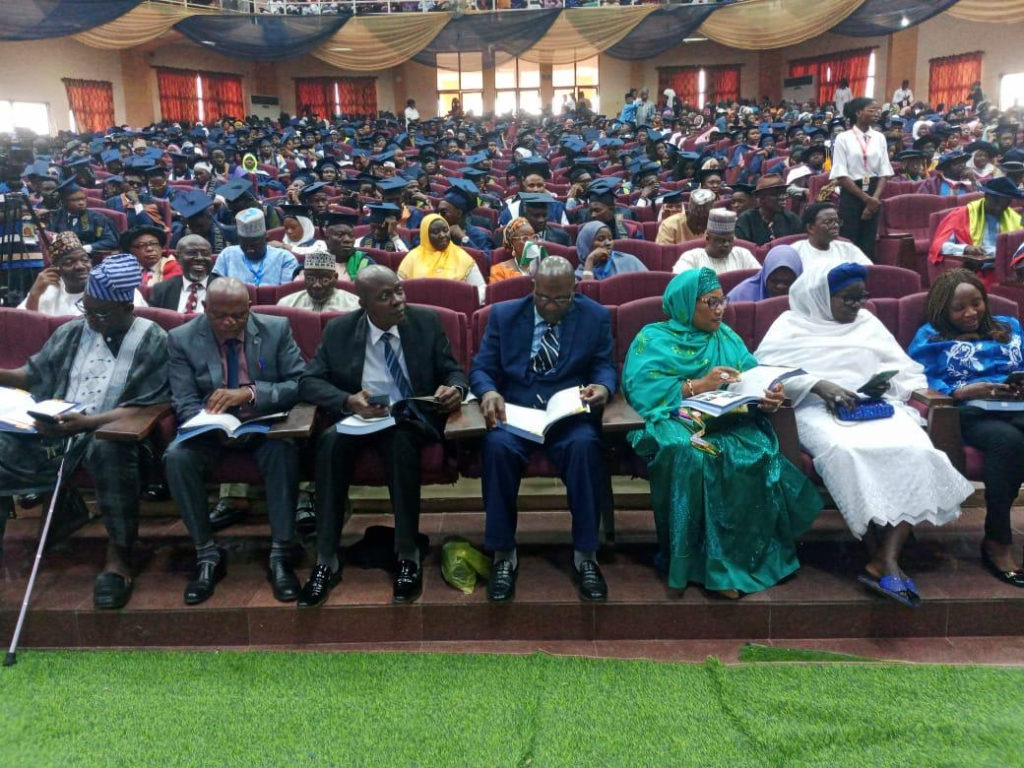
Egbewole also said the nation’s education sector especially higher education, has suffered avoidable setbacks in the recent past leading to brain drain and he has urged government at all levels to declare a state of emergency in order to correct the situation.
‘ Our institutions need more hands to deliver on their mandates and funds for serious academic works, researches and collaborations for desired outputs’ he submitted.
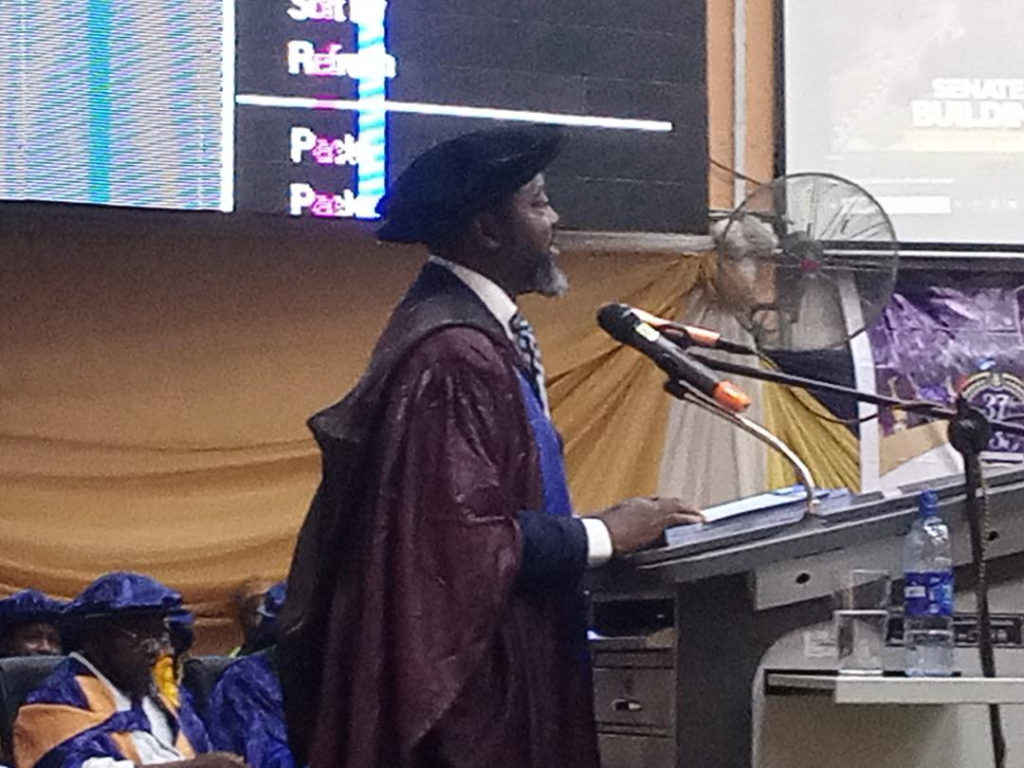
With the graduands becoming alumni of the university, an official of the University of Ilorin (Unilorin) Alumni Association, Professor Jeleel Ojuade, who is the Vice-Chancellor of the CrownHill University, presided over the oath taking ceremony held for them during the event.
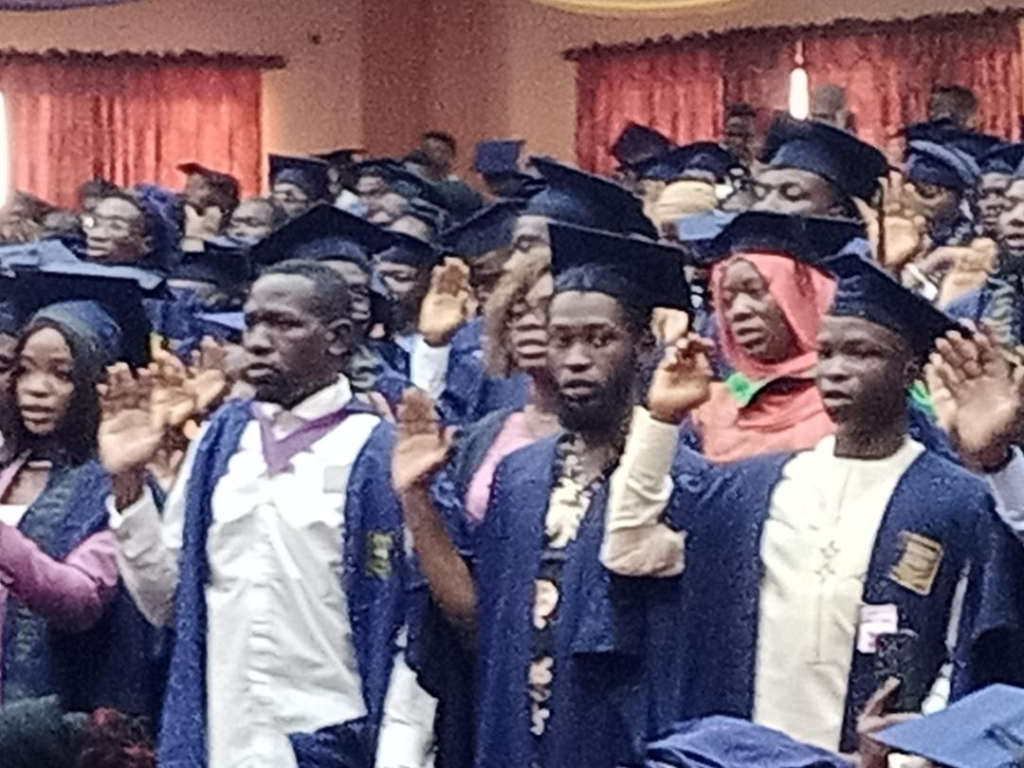
Dignitaries at the event include Commissioner of Police, Kwara state , Mr. Olaiya Victor Mobolaji
and Mr. Kehinde Eleja SAN-Team@orientactualmags.com
Do you have any information you wish to share with us? Do you want us to cover your event or programme? Kindly send SMS to 08059100286, 09094171980. Thank you

